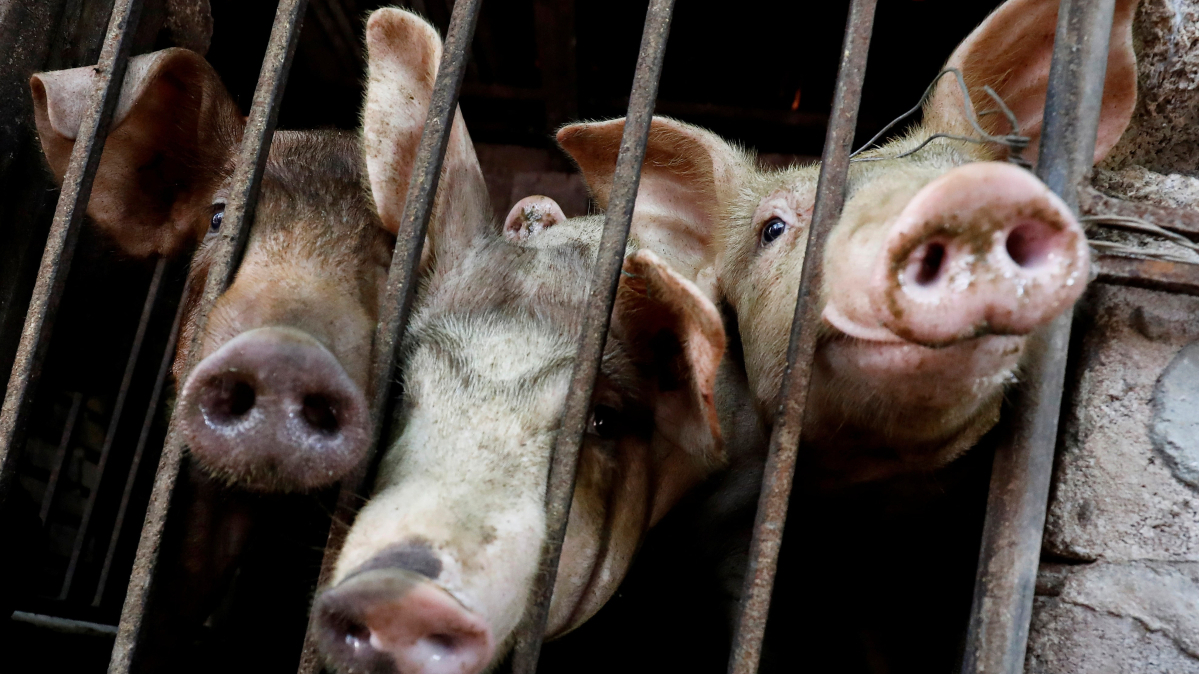Kazakhstan boosts Caspian Sea research with $2.2 million to tackle biodiversity loss
Kazakhstan says it's allocated $2.2 million to strengthen scientific monitoring of the Caspian Sea amid growing concern over falling water levels, bio...

The Spanish agricultural sector has been placed on high alert following the confirmation that African Swine Fever (ASF) has resurfaced in the country for the first time in over thirty years.
The detection of the virus in two wild boar found dead near Barcelona marks the end of Spain’s ASF-free status since 1994, potentially jeopardising the European Union's largest pork industry.
The discovery has prompted immediate emergency protocols from the Agriculture Ministry, as officials race to contain the infection and prevent it from jumping to commercial pig herds.
The location of the outbreak is particularly concerning for industry observers. The wild boars were found in Catalonia, a region in the northeast that serves as the heartland of the Spanish pork sector.
Catalonia is home to a dense concentration of pig farms and related industries, making strict biosecurity measures critical in the coming days to avoid transmission from the wildlife population to livestock.
High Stakes for Trade with China
The resurgence of the virus comes at a delicate moment for Spain’s trade ambitions. Over the past five years, Madrid has aggressively courted Beijing, successfully positioning itself as the premier supplier of pork to China—the world’s largest consumer of the meat.
Spain significantly increased its market share after Germany, a rival producer, was slapped with a blanket ban by Beijing following its own ASF outbreak in 2020.
However, the economic fallout from this new detection may be mitigated by a timely diplomatic victory. Earlier this month, Spanish and Chinese officials signed a crucial protocol regarding export sanitation.
Under this new agreement, Beijing has agreed to apply "regionalisation" principles in the event of an outbreak. This means that import restrictions should theoretically be limited only to the affected region—in this case, the specific area near Barcelona—rather than a total ban on all Spanish pork products.
A Resilient Virus
African Swine Fever is a highly contagious viral disease that is usually fatal to pigs and wild boar. While it poses no danger to human health and does not affect food safety, it is economically devastating for farmers.
The virus is known for its resilience; it can survive for long periods in the environment, on clothing, and in pork products, making eradication difficult once it establishes a foothold.
Spain is currently the EU's leading pork producer, accounting for roughly a quarter of the bloc's total output, having recently overtaken Germany. The sector is a pillar of the Spanish economy, particularly in rural areas.
Emergency Measures Activated
The Agriculture Ministry confirmed on Friday that it has formally notified the European Commission and the World Organisation for Animal Health (WOAH).
An emergency investigation is currently underway to determine the source of the infection, though the movement of wild boar populations often makes tracking the virus’s origin challenging.
“We have activated all emergency measures in the affected zone,” a Ministry spokesperson stated. "We are urging all pig farms, particularly those in the northeast, to exercise extreme caution and reinforce biosecurity perimeters to ensure no contact occurs between wild fauna and farm animals."
Spain’s previous battle with ASF was a protracted struggle that lasted from the 1960s until its eventual eradication in the mid-1990s. Authorities are hopeful that modern surveillance and the rapid detection of these cases in the wild will prevent a repeat of that decades-long crisis.
Italy said a fond farewell to the Winter Olympics on Sunday with an open-air ceremony in the ancient Verona Arena that celebrated art and sporting achievement at a Games lauded as a model for how to stage such events.
The United States and Iran will hold a new round of nuclear negotiations in Geneva on Thursday as part of renewed diplomatic efforts to reach a potential agreement, Oman’s Foreign Minister Badr Albusaidi announced on Sunday.
Further Iran-U.S. nuclear talks are scheduled in Geneva on Thursday (26 February) as diplomacy resumes over Tehran’s nuclear programme following earlier mediation efforts. But will the talks move Iran-U.S. negotiations closer to a deal, and what should be expected from the meeting?
Mexican authorities said on Sunday that Nemesio Oseguera Cervantes, known as El Mencho and head of the Jalisco New Generation Cartel (CJNG), was killed during a military operation in the western state of Jalisco.
Syria has secured a $50 million financing package from the World Bank to support transport infrastructure projects as the country advances its economic recovery efforts, Syrian media reported on Sunday.
Measles cases across Europe and Central Asia fell sharply in 2025 compared to the previous year but health officials have warned that the risk of fresh outbreaks remains unless vaccination gaps are urgently addressed.
A Florida university has become a new hotspot in a widening U.S. measles outbreak, with health officials confirming multiple infections and hospitalisations.
The World Health Organization has added the Nipah virus to its list of the world’s top 10 priority diseases, alongside COVID-19 and the Zika virus, warning that its epidemic potential highlights the global risk posed by fast-spreading outbreaks.
Belgian authorities are examining suspected cases of infants falling ill after consuming recalled Nestle baby formula, amid warnings that confirmed infections may be underestimated due to limited testing requirements.
Two Nipah infections involving health workers in India have triggered heightened screening across Southeast Asia as authorities move to prevent the high fatality virus from spreading beyond the country.
You can download the AnewZ application from Play Store and the App Store.

What is your opinion on this topic?
Leave the first comment